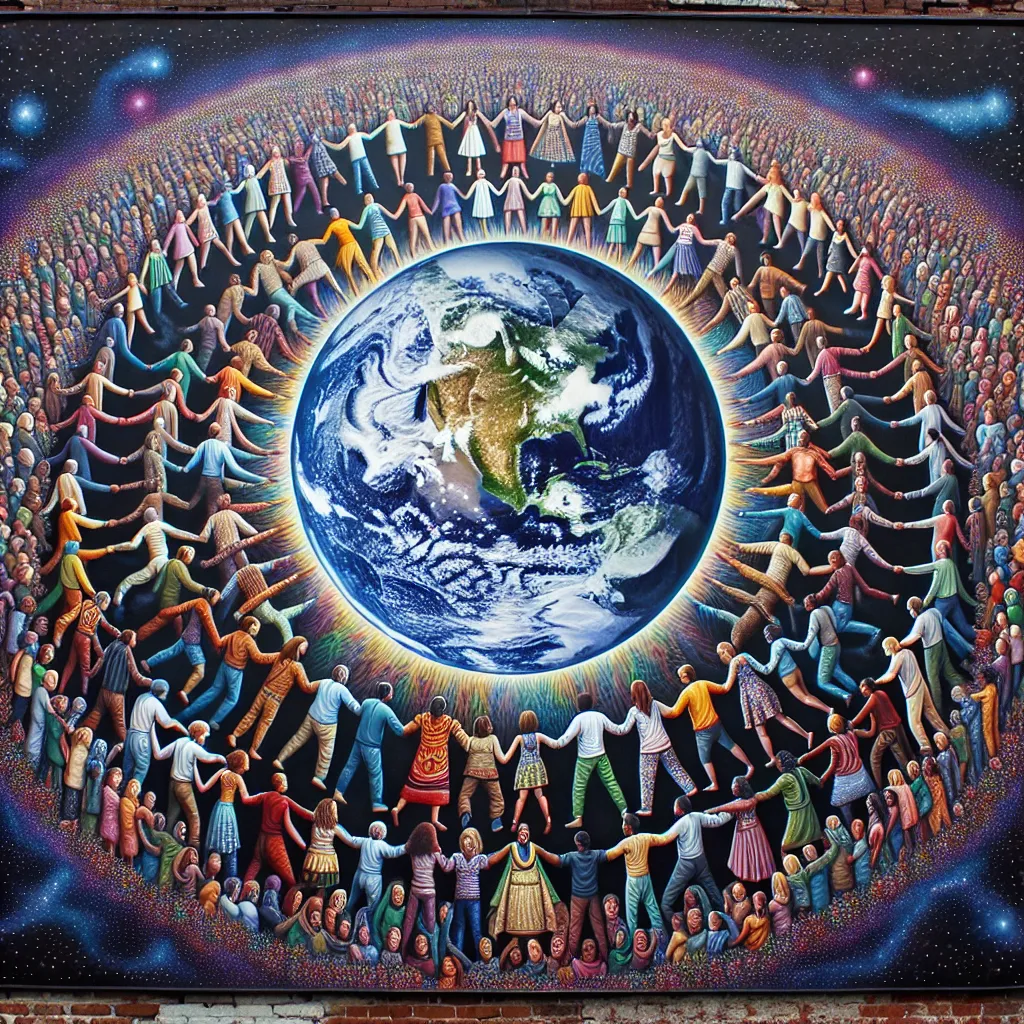Blame
The etymology of the word "blame"
The word "blasphemy" came via Middle English blasfemen and Old French blasfemer and Late Latin blasphemare from Greek βλασφημέω, from βλασ, "injure" and φήμη, "utterance, talk, speech" against God. From blasphemare also came Old French blasmer, from which the English word "blame" came.
No Blame. Only Inclusive Love.

Blame is a powerful and destructive mechanism that not only shifts interpersonal dynamics but also alters our state of inner peace and connection with the universe. At its core, blame is the assignment of responsibility for the emotional discomfort we feel to a “wrongdoing or mistake” done by someone else. This act of pointing fingers does more than merely identify a culprit; it introduces a fundamental separation between the self and others, creating a dualistic framework that stands in contrast to the concept of oneness.
It is this inner shift from oneness to dualism that sets us against the truth of the Cosmos. And this againstness is why we hurt, and even why we take revenge.
Oneness is an ancient and central theme in many spiritual and philosophical traditions. It suggests an intrinsic connection between all aspects of the universe, emphasizing unity and interdependence. The philosophy of oneness proposes that all distinctions we make between ourselves and the world around us are, in some way, illusions created by our perceptions. By adhering to a belief in oneness, any sense of separate self dissolves, and we acknowledge our role as part of a larger, dynamic whole.
Blame and Dualism fundamentally disrupt this oneness. When we blame others, we are essentially drawing a line between 'self' and 'other.' This act reinforces the ego and strengthens the illusion of separateness, fostering a mindset that views the world in terms of division and opposition. The consequences of blame are more nuanced than the superficial vindication it might provide. By focusing on division, we close ourselves off from understanding the complexities and shared nature of human experiences. We ignore the interconnected factors that contribute to every situation, choosing instead a simplified narrative that pits one side against another.
The resistance to the flow of time emerges as a natural extension of blame's dualistic nature. By holding onto blame, we refuse to accept the present reality, engaging instead in a mental and emotional struggle against it. This resistance manifests as a denial of the fluid and ever-changing nature of life, where the only constant is change itself. In resisting, we attempt to freeze time at a particular moment—typically one that justifies our perspective or absolves us of our own responsibilities.
This act of holding on to blame creates significant inner pain. The origin of this pain lies in the dissonance between our desire for the world to be different (a desire born from blame and resistance) and the reality of the world as it continuously unfolds. The intensity of this pain is proportional to the strength of our resistance. However, instead of recognizing the internal source of this discomfort—the resistance itself—we erroneously project it outward onto 'the other.' The blamed individual or group becomes the supposed cause of our suffering, further entrenching the illusion of separation and diverting us from the true path of healing, which lies within understanding and integration.
To transcend this cycle of blame and the resultant pain, a shift back to oneness is the key. This involves understanding and empathy, replacing judgment with curiosity about the shared human conditions that underlie all actions. It calls for meditation or reflection to dissolve the barriers erected by the ego, recognizing our shared vulnerabilities and imperfections.
In perceiving without blame, we realign ourselves more closely with the universe's ever-changing flow, accepting both its challenges and its gifts with equanimity. This re-alignment not only reduces our inner pain but also fosters a more compassionate and interconnected world.
In summary, blame creates a dualistic perspective that emphasizes separation and resists the fluid nature of the flow of time, leading to inner pain misattributed to external sources. Recognizing our oneness with all elements of the universe enables us to overcome the illusion of separateness, embrace change, and heal the misorientation within us, which is the true cause of our resistance, anger, hate and blame.